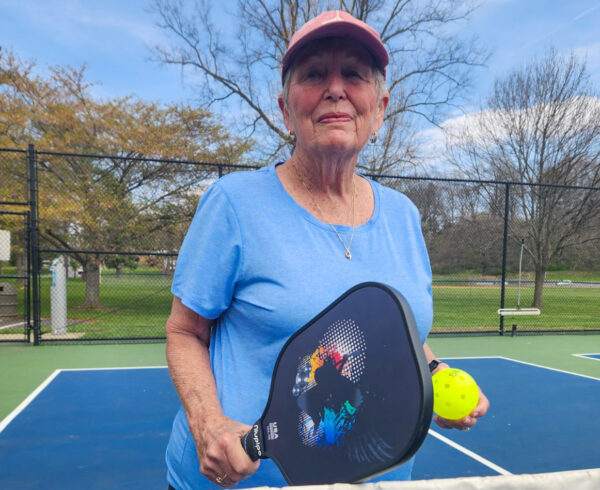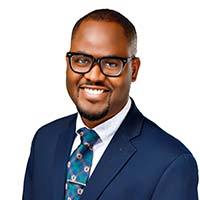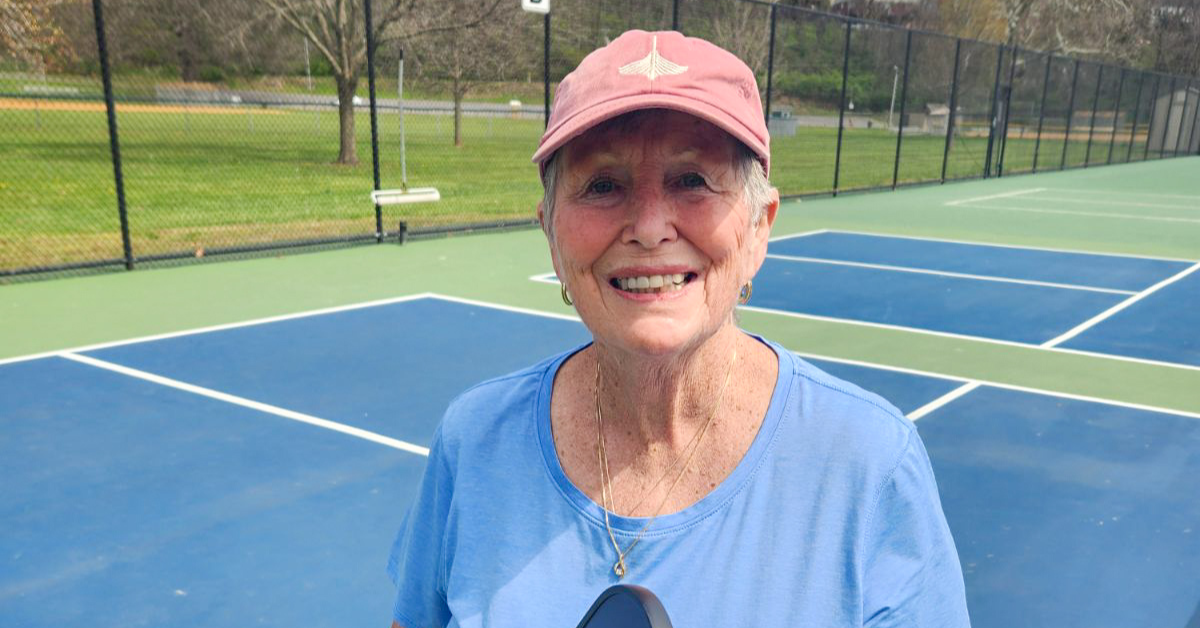Elizabeth Hurtekant had no idea the confusion, balance problems and incontinence that haunted her for years could be treated with a minimally invasive surgical procedure.
“I had a hard time thinking, and sometimes I was really tired,” says the Conway resident, 77. “I just didn’t know what was going on with my body. We knew something was wrong.”
Hurtekant and her husband, Kerry, enjoy traveling the country in their RV. However, after several falls and doctor appointments in Maine, Hurtekant’s condition remained undiagnosed, and she was left with more questions than answers.
After relocating to Conway in April 2023, she finally got an answer from Tidelands Health neurologist Dr. Michael McCaffrey, who diagnosed her with fluid on the brain and referred her for treatment to Tidelands Health neurosurgeon Dr. Oluwaseun Omofoye.

Drs. Omofoye and McCaffery are part of the advanced neurosciences program at Tidelands Health, our region’s largest health care provider.
“When I saw Elizabeth, she had all of the classic symptoms of idiopathic normal pressure hydrocephalus,” says Dr. Omofoye. “Hydrocephalus, the buildup of spinal fluid in the brain, is very common in older patients and can manifest without a specific cause, as in Elizabeth’s case. It can also be caused from a traumatic brain injury or brain bleed.”
Hurtekant’s condition, confirmed by CAT scan and MRI, was unrelated to an injury but was characterized by enlarged ventricles in her brain — a hallmark of hydrocephalus.
Aside from the ventricle enlargement, Hurtekant had trouble walking, cognitive impairment and frequent urination.
Often mistaken for dementia or early-stage Alzheimer’s, untreated hydrocephalus can lead to severe disability.
Typically, the brain produces about 20 cubic centimeters of spinal fluid per hour. This fluid cushions the brain and aids in eliminating waste products. If the brain is unable to reabsorb the fluid, as in Hurtekant’s case, it backs up and can begin to cause neurological problems.
“When they told me I had fluid on the brain, I just started crying,” Hurtekant says. “It was scary. But we prayed about it, and I felt at peace. Dr. Omofoye was very kind, patient and compassionate. And I felt like I was in good hands.”
Following an evaluation that involved temporarily draining the fluid, she underwent a successful, minimally invasive surgical procedure to implant a permanent shunt in her brain – a device that alleviates fluid buildup.
The shunt, inserted beneath the skin and into the brain’s fluid space, diverts excess fluid to the abdomen through a tube that runs from the brain into the abdomen, effectively relieving pressure. A programmable device allows for adjustments as needed.
“Elizabeth responded remarkably well to treatment,” Dr. Omofoye says. “She’s still doing great, and her prognosis is good.”
Recovery wasn’t without its challenges, but Hurtekant persevered to reclaim what the condition had stolen.
“I had lost muscle tone, but with exercise and determination, I got back my strength,” she says. “Thanks to the surgery, my thinking is back, my bladder function is restored, and I’m even back to playing pickleball. I have so much joy. I’ll be forever grateful to Dr. McCaffery and Dr. Omofoye for giving me my life back.”

Dr. Oluwaseun Omofoye
Neurosurgeon, Tidelands Health
Call to Schedule
Bio
Dr. Oluwaseun Omofoye is a fellowship-trained neurosurgeon at Tidelands Health Neurosciences in Murrells Inlet.
Learn MoreMedical Education
Education
University of North Carolina, School of Medicine
Residency
University of California Davis Medical Center, Neurosurgery
Fellowship
Cedars-Sinai Medical Center, Neurosurgical Oncology/Skull Base
Awards
- James E. Boggan Resident Scholar Award, UC Davis Department of Neurosurgery, 2020
- Kaiser Foundation Hospital Sacramento Department of Neurosurgery Resident Award, 2020
- Resident Scholarship Award, San Francisco Neurological Society, 2020
- Elizabeth Bullitt Resident of the Year Award, UNC Department of Neurosurgery, 2017
- First Place, 2015 UNC Healthcare Quality Expo
- The UNC Medical Alumni Loyalty Fund Scholarship, 2011
- First Place, Biological and Health Sciences Oral Presentation, UNC Research Day 2011
- The June C. Allcott Fellowship, 2011
- Eugene Mayer Community Service Honor Society Inductee, 2011
- The John B. Graham Student Research Society Inductee , 2011
Meet the Expert
Dr. Oluwaseun Omofoye
Call to Schedule
Dr. Oluwaseun Omofoye is a fellowship-trained neurosurgeon at Tidelands Health Neurosciences in Murrells Inlet.






